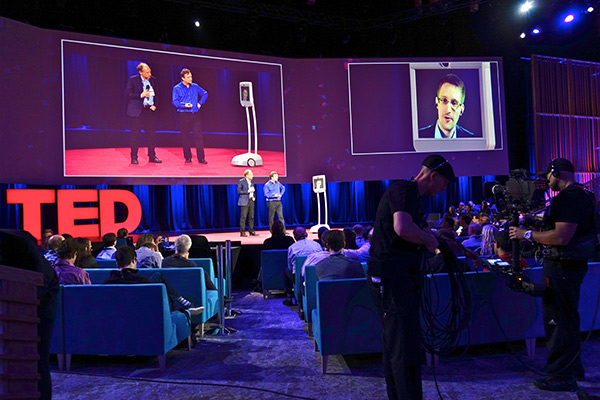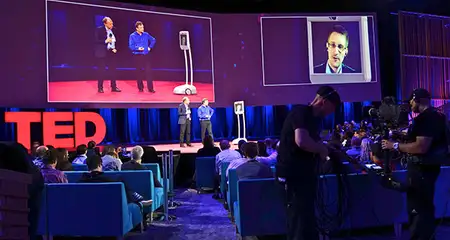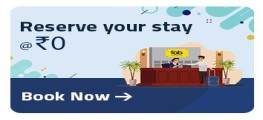During these unprecedented times when everything around us seems to be falling apart, we all need to keep our spirits high, one way or another. This is all the more important for business leaders, who have to not only manage their organizations through the Coronavirus crisis but also keep their entire team motivated. Certainly, these are the times when their leadership is put through the real test. So, it is essential for them to be a pillar of strength to help their company and all of the stakeholders sail through the storm, only to come out more resilient than ever before.
For inspiration, we have compiled a list of TED Talk speeches by some of the world’s most influential public speakers that can help business leaders keep a positive mindset during these uncertain times and navigate the Coronavirus crisis or any other challenges in future.
1. Simon Sinek: “How Great Leaders Inspire Action”
Addressing the question of “HOW?”, this video presents a simple yet powerful model of inspirational leadership. With examples of the likes of Steve Jobs, Martin Luther King Jr. and the Wright brothers, Simon elaborates how inspiring leaders and organizations think, act and communicate.
2. Tony Robbins: “Why We Do What We Do”
Tony Robbins discusses the “invisible forces” that motivate actions, and how the resourcefulness of a person holds higher value than the person itself. He also discusses how we all have the capability to positively impact the world and, as individuals, overcome our fears to reach that potential.
3. Jason Fried: “Why Work Doesn’t Happen at Work”
Jason argues how the main barriers to productivity are M&Ms, i.e. Managers and Meetings, and not the tea or social media breaks. He stresses on the fact that employees should be allowed to work for at least a day without any interruptions, which especially includes unnecessary meetings.
4. Ricardo Semler: “How to Run A Company With (Almost) No Rules”
Ricardo discusses a fundamental form of corporate democracy, rethinking everything – from board meetings to intimation of leaves. He has a unique vision that rewards the wisdom of his employees, encourages work-life balance and sheds some light on what work and life is really all about.
5. Charlene Li: “Efficient Leadership in the Digital Era”
Charlene walks us through how we can be better leaders in this novel, digital era. She identifies how modernization, innovation and quick action are crucial to successful businesses now more than ever, and breaks down how empowering employees can help foster better decision-making.
6. Rosalinde Torres: “What It Takes to Be a Great Leader”
Torres discusses how isolated leadership is not effective anymore in today’s digital world. According to her, the aptitude to anticipate the future, build diverse teams with a variety of perceptions and a readiness to break from convention are critical aspects of becoming a better leader.
7. Shawn Achor: “The Happy Secret to Better Work”
Did you know that in 21 days you can rewire your brain to see things positively? Shawn says you can by writing down things you are grateful for, performing random acts of kindness and meditating. He also explains how keeping its employees happy can help an organization succeed.
8. Kelly McGonigal: “How to Make Stress Your Friend”
Learn from Kelly how stress is not really our enemy and if you can alter the way you think about it, it can even become your friend. She further throws light on the upside of stress and shares insights on how you could make what feels to be quite intimidating a little easier to endure.
9. David Logan: “Tribal Leadership”
In this TED talk, David Logan talks about how an organization is a sum of different “tribes” or groups of people with similar, unique characteristics. He further explains the five stages of tribal leadership, and how companies can leverage tribes at each stage to improve performance.
10. Dan Pink: “The Puzzle of Motivation”
Dan gives a new take to the idea of motivation with humour and amusing stories, which divulge new ways of approaching the managerial role. He believes that getting past the one-dimensional “carrots Vs sticks” philosophy, and leading people with purpose can make a business stronger.




























